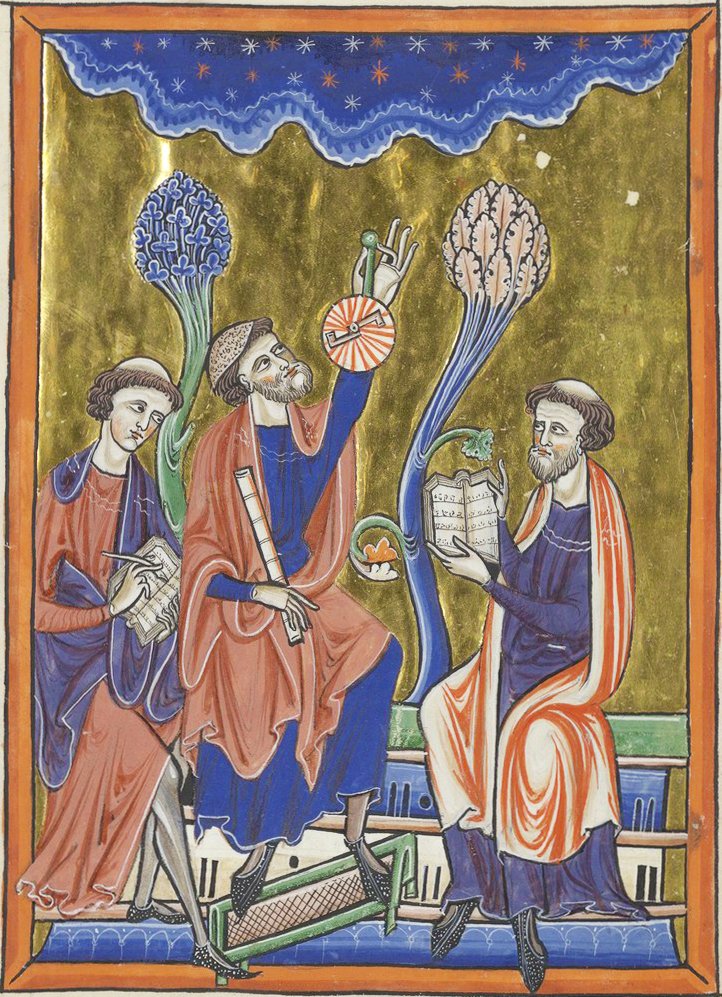


A Discourse Concerning The Antiquity And Origin Of The Points, Vowels And Accents That Are Placed To The Hebrew Bible (Part 5)
“Now these unpointed letters they either made so, or found them so. If they themselves made them so, their notes thereon were very silly, and would not have been valued by any without reasons alleged for the same, having pointed all the rest: and if they found them so written, as no doubt but they did, then the points were in being before their time.
Moreover, had they ventured to point all the Bible, they would never have scrupled either to have pointed these individual letters, or have left them out of the text. But the truth is, by the not pointing these letters, the keri and ketib of them is preserved, which has been kept since Ezra’s time; and therefore the means whereby they are preserved (and that is, the pointing the one, and not the other, has been as ancient likewise, as Rabbi David Kimchi in his preface on Joshua observes).”



A Discourse Concerning The Antiquity And Origin Of The Points, Vowels And Accents That Are Placed To The Hebrew Bible (Part 2)
In this installment of Dunton’s discourse on the Hebrew pointing, he frames the question, and introduces evidence from 12th century rabbi Abraham Ibn Ezra attesting to the antiquity of the pointings and the role of Ezra in penning them - evidence which was distorted by opponents of the points such as Ludovicus Capellus and Brian Walton, according to Dunton.
This is part 2 of a multi-part series, in which we will be setting out the Athenian Society’s discourse on the antiquity of Hebrew pointing in full.

A Discourse Concerning The Antiquity And Origin Of The Points, Vowels And Accents That Are Placed To The Hebrew Bible (Part 1)
We are releasing "A Discourse Concerning The Antiquity And Origin Of The Points, Vowels And Accents That Are Placed To The Hebrew Bible" across several blog articles. The Athenian Society was founded in 1691 - the year that this essay was published - by John Dunton, an English bookseller.
This is part 1 of a multi-part series, in which we will be setting out the Athenian Society’s discourse on the antiquity of Hebrew pointing in full, in a series of consecutive blog posts over the next few days or so. Lord-willing, we will put all the blogs together and release this as a downloadable PDF into one single file.
We are reproducing this work due to its value in the current debate over the text of Scripture. May it be a blessing unto you, dear reader.


The Synopsis & Contents of Francis Roberts’ God’s Covenants
We are pleased to present the full table of contents from all five volumes of God’s Covenants: The Mystery & Marrow of the Bible by Francis Roberts (1657; Berith Press 2023-24).

Thomas Hall’s Rhetorica Sacra
Thomas Hall (1610-1665) is one of the most piercing and rewarding Puritan divines. In his work "The Schools Guarded," he defines several common tropes and figures of Scripture.
Today, Berith Press is delighted to reproduce Hall's "Rhetorica Sacra" in full, extracted from the aforementioned book.
While most of us will recognize terms like "metaphor," "irony," and "exegesis," several other terms are not widely known - and yet will help us by God's grace to better understand and describe how the Holy Spirit speaks to us in the Scriptures.

Conclusions Concerning the Eternal Generation of Jesus Christ, by Francis Cheynell
Centuries ago the Socinians objected to the doctrine that the Father did beget a Son of his own substance, because they saw it as harming the doctrine of God’s unity. In this passage - excerpted from Cheynell’s 1650 work The Divine Trinunity of the Father, Son, and Holy Spirit (republished in 2024 by Berith Press) - Francis Cheynell proves from Scripture that the eternal generation of Christ is an orthodox, Biblical doctrine, and lays out his conclusions logically.

The Seven Things That We Here Promise, Vow, and Protest in the National Covenant. (Part II)
In the second blog post serializing Thomas Mocket’s work on the national covenant, Mocket sets down the seven things that the covenanters promise, vow and protest - the first being: “to maintain and defend with our lives, power and estate, the true Reformed Protestant religion, expressed in the doctrine of the Church of England, against all popery and popish innovations, within this realm, contrary to the same doctrine.” Read on to discover more.

A Covenant Once Made Must Be Faithfully Observed (Part I)
In these illuminating paragraphs, Puritan divine Thomas Mocket sets out what a covenant is, what it means to covenant with God, how such a covenant must be observed, and the grounds and duties of such a national covenant. Read on as Berith Press marks 386 years since the National Covenant was established in Scotland: a key forerunner to the Solemn League and Covenant.




A Glass for Gentlewomen to Dress Themselves By
What follows is a treatise by Thomas Taylor: “A glass for gentlewomen to dress themselves by” that Berith Press has lightly cleaned up for syntax, grammar, and spelling.

Thomas Vincent on how to personally covenant with God
Covenanting with God personally is a duty for all Christians, and Thomas Vincent sets forth how you may do so.

The importance of Francis Roberts’ God’s Covenants
Several reasons why Francis Roberts’ God’s Covenants is a vitally important work for our day.
